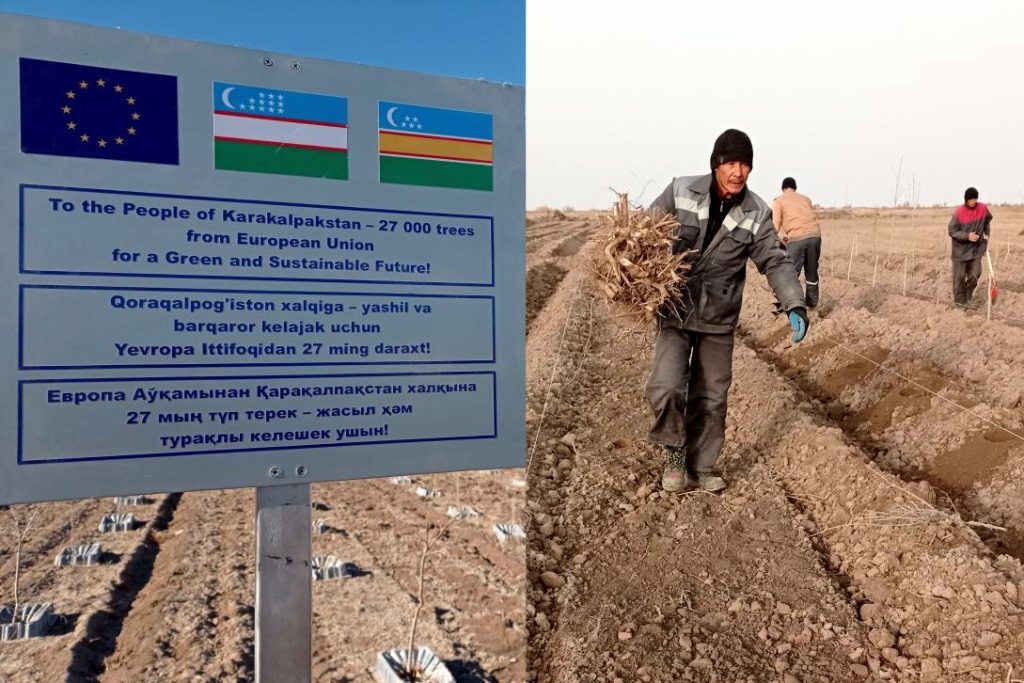27,000 tree seedlings were planted by the European Union on the dried bottom of the Aral Sea on the territory of the Republic of Karakalpakstan, Uzbekistan. It is noteworthy that this figure symbolizes the 27 EU member states that have made this “green” gift to the Central Asian country.
According to the EU Delegation to Uzbekistan, among the species of trees planted are desert trees saxaul and qandym, as well as ornamental trees, such as catalpa, mulberry, ash tree, elm, and Japanese sophora – all adaptive to the climatic conditions of the region.
The landscaping initiative is aimed at supporting Uzbekistan’s efforts to transform the Aralkum desert and neighboring settlements of Karakalpakstan into a forest.
The Aral Sea disaster affected the lives of millions of people living in the region. Land degradation, lack of drinking water, loss of biodiversity have led to a deterioration in the health and socio-economic condition of the local population.
The EU has taken a number of consistent steps to rehabilitate the Aral disaster zone. Since 2020, the European Union has donated over 5 million euro in the UN Multi-Partner Human Security Trust Fund for the Aral Sea Region to finance the programs on provision clean drinking water to the population, developing sustainable entrepreneurship, studying the seabed and biodiversity, repair and technical equipment of medical institutions.
In April 2022, more than 30 representatives of the EU, its member states and state institutions of Uzbekistan took part in a study trip to Karakalpakstan and visited the local project territories of the Multi-Partner Trust Fund.
During this visit, the EU also committed to contribute to the afforestation of the region, and the EU ambassadors planted the first batch of seedlings in Muynak and at the “Cemetery of Ships”. The International Innovation Center of the Aral Sea Region (ICP) under the President of the Republic of Uzbekistan had then taken over and completed the planting of donated trees as part of the government project “My Garden in the Aral Sea”.
“More than ever, it is obvious how much we depend on nature for our health and wellbeing. The Aral Sea crisis is a striking example of how urgently we need to act now For Our Planet. At COP27 and COP15, as the world’s leading contributor of international climate finance, the European Union and its Member States have reiterated their commitment to support most vulnerable countries and accelerate action both domestically and worldwide. We will continue working with the partners in Uzbekistan to reduce environmental degradation and restore sustainable life in the Aral Sea region”, said H.E. Charlotte Adriaen, Ambassador of the European Union to Uzbekistan.
On 11 November 2019, during the visit of the delegation of Uzbekistan to Brussels, a Financial Agreement was signed with the European Union on contribution to the Multi-Partner Human Security Trust Fund for the Aral Sea region.
In February 2020, Contribution Agreement was signed between the European Union and the UN MPHSTF Office. The EU contribution aims to strengthen the health of populations, reduce environmental degradation, and boost resilience of vulnerable populations affected by the Aral Sea disaster.///nCa, 13 December 2022 (photo source – EU Delegation to Uzbekistan)
